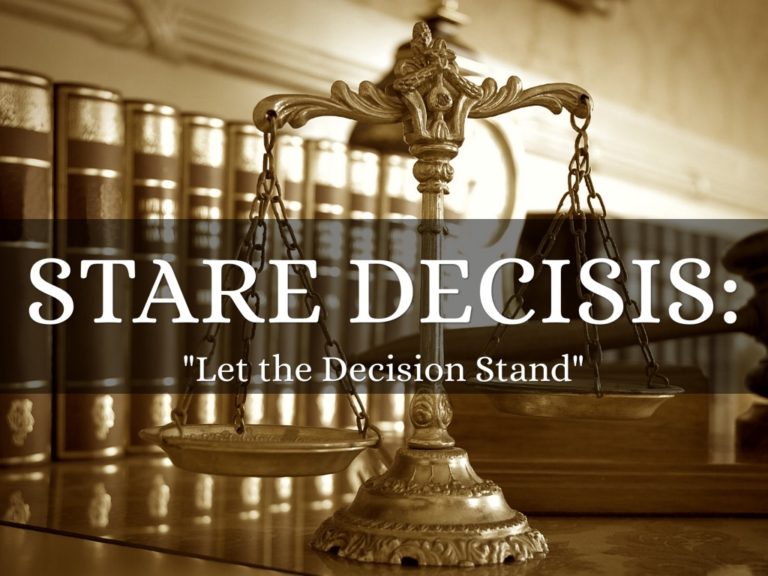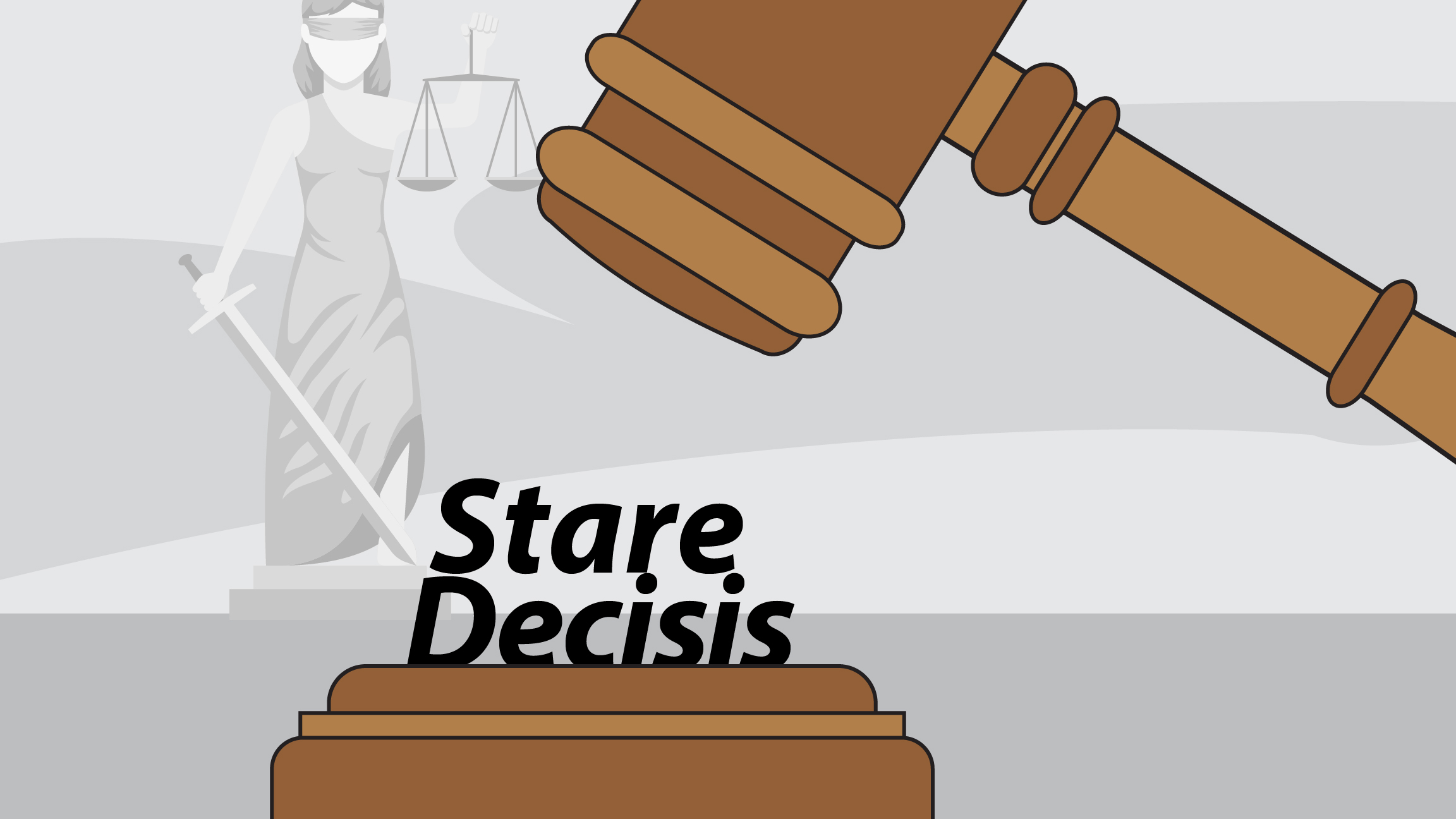Legal Precedent: Stare Decisis
:max_bytes(150000):strip_icc()/stare_decisis.asp_final-6d4689880426446e9178372281e95a49.png)
Legal precedent, also known as stare decisis, is a fundamental principle in common law systems that requires courts to follow the legal principles established in previous cases when deciding similar cases.
Stare decisis, the legal principle of adhering to precedent, has faced challenges in recent years, including the Supreme Court’s overturning of the “Chevron deference” doctrine. Chevron overturned meaning refers to the Court’s decision to limit the deference given to federal agencies’ interpretations of ambiguous statutes.
This ruling has implications for stare decisis, as it suggests a willingness to depart from established precedent in certain circumstances.
The doctrine of stare decisis ensures consistency and predictability in the application of the law. It prevents courts from overturning well-established legal principles and promotes the fair and impartial administration of justice.
Stare decisis, the principle of following precedent, plays a crucial role in maintaining consistency and stability in the legal system. This principle ensures that similar cases are treated similarly, fostering predictability and fairness. In the context of civil rights, stare decisis has been instrumental in upholding the landmark civil rights act , which prohibits discrimination based on race, color, religion, sex, or national origin.
By adhering to stare decisis, courts continue to uphold the principles enshrined in the civil rights act, ensuring that individuals are treated equally under the law.
Landmark Cases
- Marbury v. Madison (1803): In this landmark case, the Supreme Court of the United States established the principle of judicial review, holding that the judiciary has the authority to declare laws unconstitutional.
- Brown v. Board of Education (1954): This case overturned the Supreme Court’s previous ruling in Plessy v. Ferguson (1896), which had upheld the doctrine of “separate but equal” facilities for Black and white Americans. Brown v. Board of Education declared that racial segregation in public schools was unconstitutional.
Limitations and Exceptions
While stare decisis is generally followed, there are certain limitations and exceptions to the doctrine.
Stare decisis is a legal principle that requires courts to follow precedent when making decisions. This principle helps to ensure that the law is applied consistently and fairly. However, there are some exceptions to this rule, such as when a court finds that a precedent is no longer valid.
One such exception is the “chevron overturned meaning.” This doctrine holds that courts should not defer to agency interpretations of statutes if those interpretations are unreasonable. The chevron overturned meaning has been a controversial topic in recent years, and it has been cited in several high-profile cases.
For more information on the chevron overturned meaning, please visit chevron overturned meaning. Stare decisis remains an important principle in the American legal system, but it is important to remember that there are some exceptions to this rule.
- Overruling: Courts may overrule a previous decision if it is found to be clearly erroneous or if it is no longer consistent with current societal values or legal principles.
- Distinguishing: Courts may distinguish a previous case from the current case based on relevant differences in the facts or legal issues.
- Prospective Overruling: Courts may apply a new legal rule prospectively, meaning that it will only apply to cases that arise after the new rule is announced.
Impact on Judicial Decision-Making

Stare decisis significantly influences judicial reasoning and decision-making. It promotes consistency and predictability in the law, but it can also have drawbacks if relied upon too heavily.
Consistency and Predictability
- Stare decisis ensures that similar cases are treated similarly, maintaining fairness and stability in the legal system.
- It provides predictability, allowing individuals and businesses to anticipate the outcome of legal disputes and make informed decisions.
- By relying on precedent, judges can avoid revisiting settled legal issues, streamlining the decision-making process and saving time.
Drawbacks of Over-Reliance, Stare decisis
- Stare decisis can lead to inflexibility and a reluctance to adapt the law to changing societal norms and values.
- It may perpetuate unjust or outdated precedents, hindering the development of the law and the protection of individual rights.
- Over-reliance on precedent can stifle innovation and creativity in judicial decision-making, limiting the ability of judges to address novel legal issues.
Evolution and Adaptation

Stare decisis has evolved over time, reflecting changing legal and social norms. In its early stages, it was seen as a way to ensure consistency and predictability in the law. However, as the law became more complex and society evolved, stare decisis began to be seen as a potential obstacle to progress.
Today, stare decisis is still an important principle of common law, but it is no longer seen as absolute. Courts are more willing to depart from precedent when it is outdated or unjust. This flexibility has allowed the common law to adapt to changing circumstances while still maintaining its essential stability.
Interaction with Other Legal Principles
Stare decisis interacts with other legal principles in a number of ways. One of the most important is the principle of equity. Equity is a body of law that developed alongside the common law and is based on the idea of fairness and justice. In some cases, equity can be used to override stare decisis if the court believes that the strict application of precedent would lead to an unjust result.
Another important principle that interacts with stare decisis is natural justice. Natural justice is a set of fundamental principles that are considered to be inherent in any legal system. These principles include the right to a fair hearing, the right to be represented by counsel, and the right to an impartial judge. In some cases, natural justice can be used to challenge a precedent that is seen as unfair or unjust.
Role of Social and Political Factors
Social and political factors can also play a role in the application of stare decisis. For example, a court may be more likely to depart from precedent if it believes that the precedent is out of step with current social values. Similarly, a court may be more likely to uphold precedent if it believes that the precedent is necessary to protect important social or political interests.
Stare decisis, a Latin phrase meaning “to stand by things decided”, is a legal principle that promotes consistency and predictability in court decisions. Just as the enduring appeal of the tartan pattern lies in its timeless elegance, stare decisis ensures that similar cases are treated similarly, upholding the rule of law and protecting the rights of individuals.
Stare decisis, the principle of following precedent, ensures legal stability. However, the “overturned chevron” doctrine overturned chevron allows courts to depart from precedent in certain circumstances. This flexibility balances the need for consistency with the evolution of society and legal principles, ultimately preserving the integrity of stare decisis.